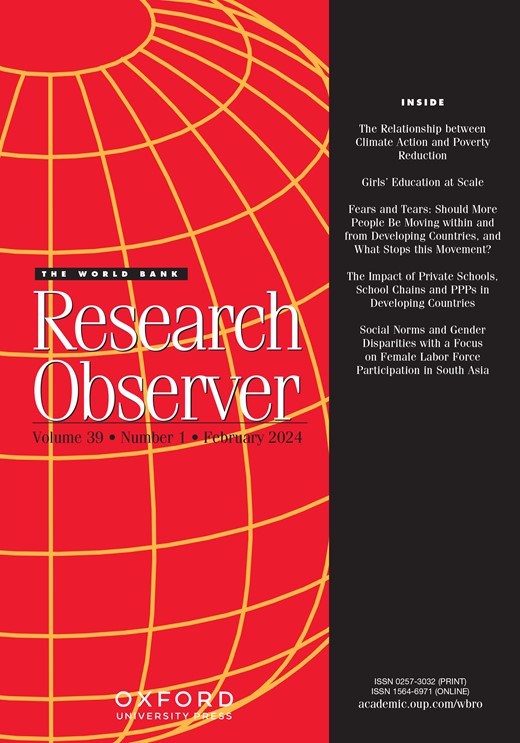Can Jobs Programs Build Peace?
IF 3.3
1区 经济学
Q1 DEVELOPMENT STUDIES
引用次数: 8
Abstract
In the last decade, well over $10 billion has been spent on employment programs designed to contribute to peace and stability. Despite the outlay, whether these programs perform, and how they do so, remain open questions. This study conducts three reviews to derive the status quo of knowledge. First, it draws on academic literature on the microfoundations of instability to distill testable theories of how employment programs could affect stability at the micro level. Second, it analyses academic and grey literature that directly evaluates the impacts of employment programs on peace-related outcomes. Third, it conducts a systematic review of program-based learning from over 400 interventions. This study finds good theoretical reasons to believe that employment programs could contribute to peace. However, only very limited evidence exists on overall impacts on peace or on the pathways underlying the theories of change. At the program level, the review finds strong evidence that contributions to peace and stability are often simply assumed to have occurred. This provides a major challenge for the justification of continued spending on jobs for peace programs. Instead, systematic and rigorous learning on the impacts of jobs for peace programs needs to be scaled up urgently.就业计划能缔造和平吗?
在过去十年中,用于促进和平与稳定的就业项目的资金远远超过100亿美元。尽管花费巨大,但这些项目是否能发挥作用,以及如何发挥作用,仍然是一个悬而未决的问题。本研究进行了三次回顾,以得出知识的现状。首先,它借鉴了关于不稳定性微观基础的学术文献,提炼出就业计划如何影响微观稳定的可检验理论。其次,它分析了直接评估就业方案对和平相关成果影响的学术和灰色文献。第三,它从400多个干预措施中对基于项目的学习进行了系统审查。这项研究找到了很好的理论理由来相信就业计划可以促进和平。然而,只有非常有限的证据表明对和平的总体影响或变化理论背后的途径。在方案一级,审查发现强有力的证据表明,对和平与稳定的贡献往往被简单地假定已经发生。这对继续为和平项目提供就业机会的理由提出了重大挑战。相反,迫切需要对就业对和平项目的影响进行系统和严格的学习。
本文章由计算机程序翻译,如有差异,请以英文原文为准。
求助全文
约1分钟内获得全文
求助全文
来源期刊

World Bank Research Observer
Multiple-
CiteScore
12.60
自引率
1.20%
发文量
8
期刊介绍:
The World Bank Journals, including the Research Observer, boast the largest circulation among economics titles. The Research Observer is distributed freely to over 9,100 subscribers in non-OECD countries. Geared towards informing nonspecialist readers about research within and outside the Bank, it covers areas of economics relevant for development policy. Intended for policymakers, project officers, journalists, and educators, its surveys and overviews require only minimal background in economic analysis. Articles are not sent to referees but are assessed and approved by the Editorial Board, including distinguished economists from outside the Bank. The Observer has around 1,500 subscribers in OECD countries and nearly 10,000 subscribers in developing countries.
 求助内容:
求助内容: 应助结果提醒方式:
应助结果提醒方式:


